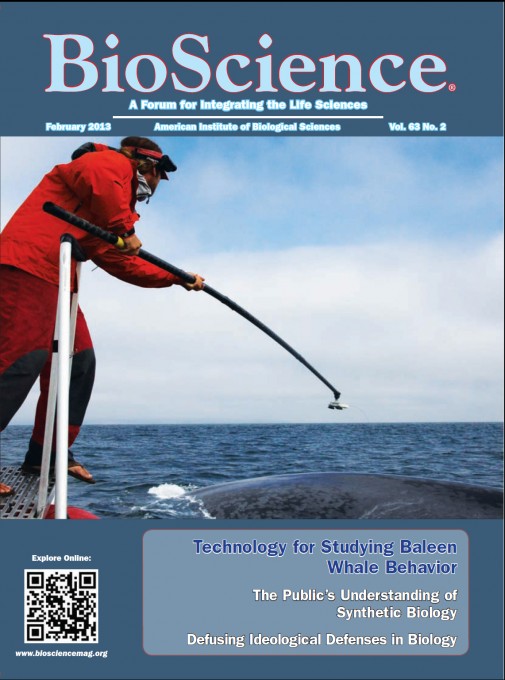A new paper was recently published in BioScience, involving a number of SEA partners and BRS collaborators.
Integrative Approaches to the Study of Baleen Whale Diving Behavior, Feeding Performance, and Foraging Ecology
Jeremy A. Goldbogen, Ari S. Friedlaender, John Calambokidis, Megan F. McKenna, Malene Simon and Douglas P. Nowacek
BioScience Vol. 63, No. 2 (February 2013), pp. 90-100 available at: http://www.jstor.org/stable/10.1525/bio.2013.63.2.5
Abstract: For many marine organisms, especially large whales that cannot be studied in laboratory settings, our ability to obtain basic behavioral and physiological data is limited, because these organisms occupy offshore habitats and spend a majority of their time underwater. A class of multisensor, suction-cup-attached archival tags has revolutionized the study of large baleen whales, particularly with respect to the predatory strategies used by these gigantic bulk filter feeders to exploit abundant oceanic resources. By integrating these data with those from other disciplines, researchers have uncovered a diverse and extraordinary set of underwater behaviors, ranging from acrobatic diving maneuvers to extreme feeding events during which whales engulf volumes of prey-laden water that are much larger than their own body. This research framework not only improves our knowledge of the individual performance and behavior of these keystone predators but also informs our ability to understand the dynamics of complex marine ecosystems.

SEA’s own Dr. Ari Friedlaender (in action above) appeared on the cover of BioScience as the article was featured in the most recent issue.
